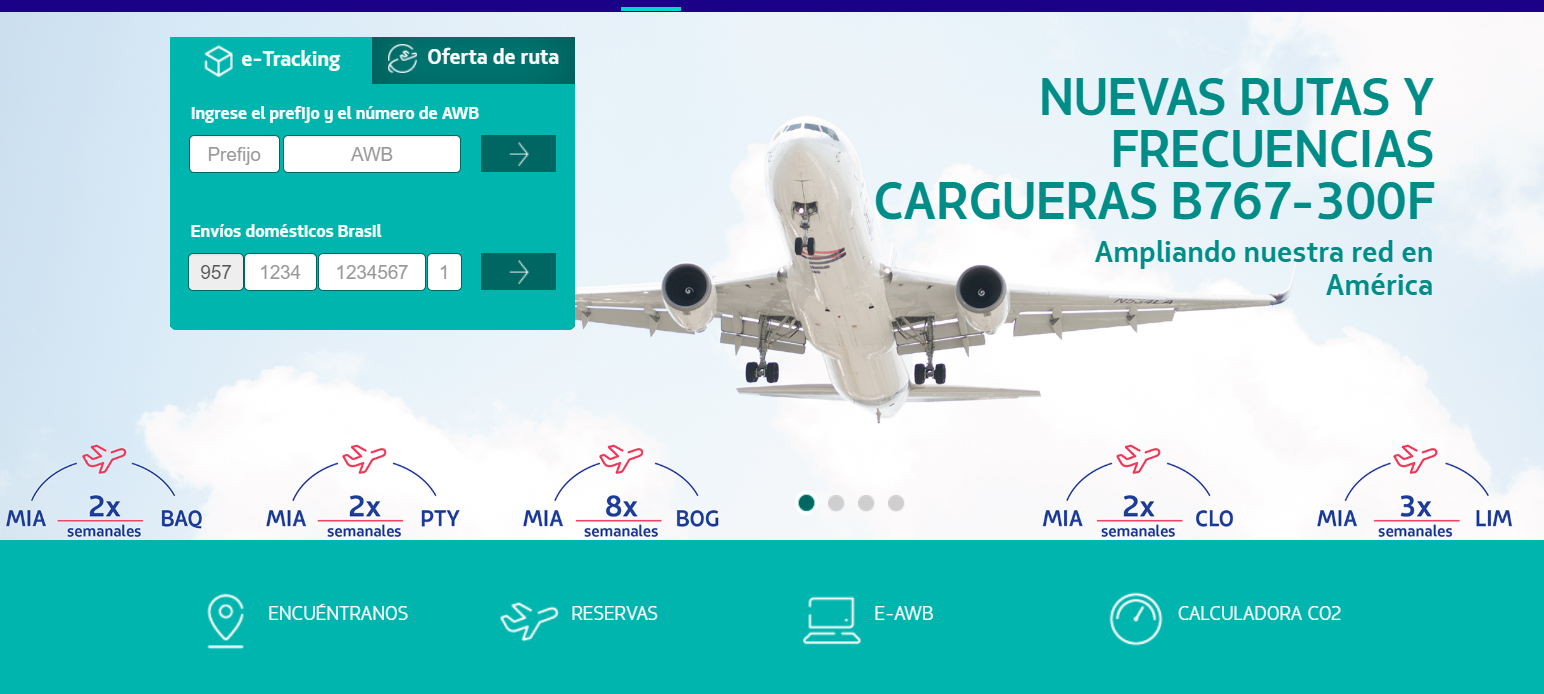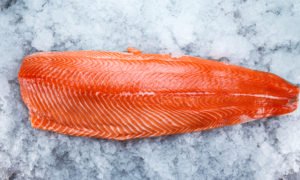With additional reporting from Matt Craze in Santiago, Chile
Chile’s largest airline, LATAM Airlines Group, has sought to mitigate the difficulties caused by a travel ban imposed by the country’s authorities to prevent the spread of COVID-19 by stepping up cargo flights even as passenger traffic falls.
Travel restrictions imposed by the Chilean government have limited the country’s capacity to export salmon to the United States.
Cargo planes, also known as “freighters”, carried some 40% of Chilean salmon exports. The remaining 60% is generally carried in the bellies of passenger flights, sources told Undercurrent News.
Since the travel ban was imposed earlier this month, LATAM reduced its passengers’ flights by 90%, leaving only 10% of capacity.
However, in order to maximize the use of its fleet and address the gap in capacity, LATAM Cargo made significant modifications to its schedules. These included routing changes, increasing the frequency of cargo flights and using empty passenger planes to ship cargo, the company confirmed to Undercurrent.
“We have faced this crisis by reacting very quickly to deliver supply that meets the needs of our customers. Specifically, we have quintupled our cargo plane travel from Santiago to Miami, [Florida, US] and will soon inaugurate the cargo route between Santiago and Los Angeles [California, US],” a company spokeswoman told Undercurrent.
With a fleet of 11 Boeing 767-300 cargo planes, LATAM Cargo has the largest freighter capacity of any airline in Latin America.
“The difficulties imposed by this contingency, force us to seek alternatives to satisfy our clients’ needs,” said Andres Bianchi, LATAM Cargo’s CEO said, pointing out the new itinerary has been implemented at “an unprecedented pace” to “take advantage of the group’s freighter fleet”.

Source: LATAM Cargo
The firm increased its freighter capacity on its Santiago and Miami route five-fold in order to increase shipping capacity for salmon firms.
In addition, LATAM has boosted capacity between European and South American destinations by 20%, adding as many as six weekly flights that will allow for trade in automotive spare parts, general cargo, medicines and perishable goods to continue. LATAM also raised its cargo schedules between North America and South America to 26 flights each week, an increase of nearly 15%.
Furthermore, the company will begin operating a freighter route between Santiago and Los Angeles in order to offer additional capacity for salmon shipments and to ensure coverage to the US West Coast, the company said. The return flights will include stops in Mexico City and Lima, Peru, as well.
“The difficulties are many, but we are aware of the key role we play in supplying countries, and we will continue to focus on delivering more solutions to our customers,” Bianchi said.
Use of passenger aircraft as cargo ships
The company’s normal strategy is to use its cargo planes to supplement its use of passenger aircraft holds. But it has been diverting some of its passenger flights to carry cargo since the crisis began.
The first two international flights were carried out on the Santiago to Mexico City route in Boeing 787-900 aircraft. In total, they transported more than 80 metric tons of cargo, mainly salmon, the company said.
The same strategy was carried out on a domestic Peruvian flight between the cities of Lima and the isolated city of Iquitos using an Airbus A320 passenger aircraft operating as a cargo flight. That route requires air transport due to the difficulty of accessing the Amazonian city by sea or land. By using seats normally taken up by passengers, the company transported mainly perishable products as well as medicine and general cargo, LATAM said.
COVID-19 measures affecting processing activity
Earlier this month, Chilean authorities implemented new measures so that the salmon sector can reduce the risk of transmission of COVID-19 as cases rise in the country.
“The COVID-19 pandemic tests us all: individuals, organizations, industries, and governments,” said Arturo Clement, president of the Chilean salmon industry association SalmonChile on Twitter, pointing out the associations’ members were taking “all the necessary measures” to prevent possible contagion at their operations.
“The entrance and exit shifts of the working day have been distanced to avoid crowds of people and the generation of displacement protocols to avoid contact between staff within the facilities,” Clement said.
Additionally, new procedures at farmers require work clothes to be changed every hour, Clement said.
“Despite the fact that our collaborators are already used to the highest standards of sterilization and sanitation, this measure redoubles preventive efforts,” he also noted.
Despite processors’ preventative measures, last week Blumar Seafoods confirmed that a maintenance worker at the firm’s Salmones de Talcahuano plant had tested positive for COVID-19. More than 450 people work at the plant, Resumen Latinoamericano reported.
Issues with shipping product from Chile’s Chiloe island prompted Compania Pesquera Camanchaca’s mussel subsidiary, Camanchaca Cultivos Sur, to suspend farming and processing operations for two weeks, it said on March 26.
In explaining its decision, Camanchaca pointed to conditions of transit routes within Chiloe as well as access to and from the island arguing that it was “impossible” to continue its activities.
And at the Chiloe salmon processing plant operated by Empresas AquaChile, the company laid off over 150 workers as COVID-19-related restrictions have reduced its output, Salmon Expert reported.
“There were indeed disengagements. The vast majority of fixed-term people who were paid their full contract but given the reality of the island will stay in their homes. That is to say, that their salary was maintained until the end of their contract, but it was preferred to indicate to them that it was no longer necessary to go and work what was left of the contract,” AquaChile told Undercurrent, referring to the staff working at their Chiloe plant. The firm, however, declined to comment on whether it expected its processing activity to decrease and how much.
US salmon prices fell last week following a massive drop in foodservice demand.
Chile maintains Brazil access
Brazil is one of Chile’s most important Atlantic salmon markets. Despite the crisis, Chilean exporters appear to have thus far dodged a bullet after a raft of land border closures restricted movement between the two countries.
Refrigerated trucks have made the 2,480-mile journey from Puerto Montt in southern Chile to cold storage facilities of seafood distributors for major supermarkets in the greater Sao Paulo, Brazil, metropolitan area.
Despite declaring a national emergency earlier this month that shut land borders, Chilean president Sebastian Pinera has allowed trucks carrying cargo to cross into Argentina, Bolivia and Peru.
Brazil announced March 19 that it will continue to allow cargo to pass through closed overland borders. In a key step, Argentinian authorities said cargo movement from Chile can pass through Mendoza, where a major land crossing is located. Chilean salmon trucks pass through several Argentinian provinces on their long road trip to Brazil. To date, Brazil and Chile have yet to enact restrictions on domestic travel even as coronavirus cases in both countries have risen sharply.


